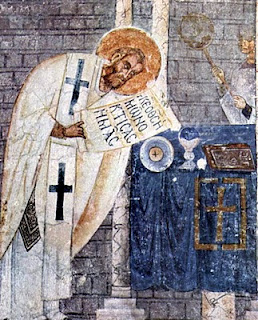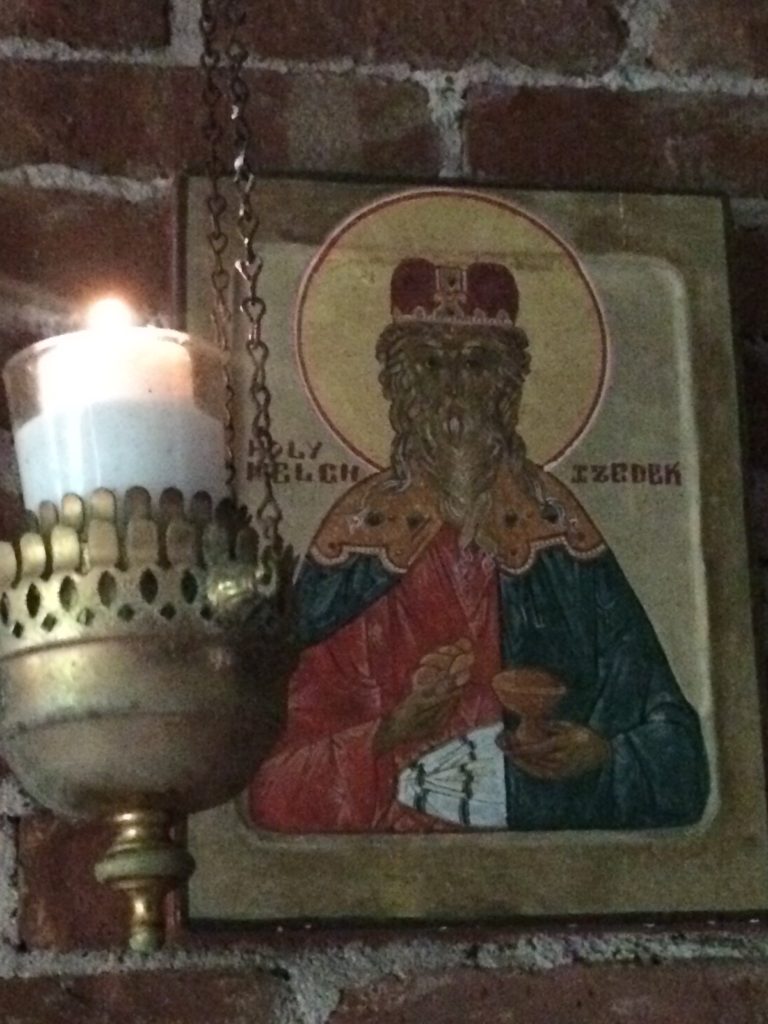
You know that as Gentiles you were marched away to mute idols, however you were led. For this reason I want you to know that no one speaking by the Spirit of God says “Jesus is anathema!” and that no one can say “Jesus is Lord!” except by the Spirit of God. (1 Cor. 12:1-3)
“Anathema” was sometimes used by pagans to mean an offering was no longer available for human use but it was used in the Old Testament to mean a thing was cursed (Deut. 7:26) and therefore should not be touched. In Christian use, the word “anathema” came to mean an idea or opinion or person was outside the broad range of acceptable theological ideas or ethical behavior considered appropriate for Christians. “Arius is anathema” was common after the first ecumenical council at Nicea in AD 325.
Each slogan–Jesus is anathema/Jesus is Lord–is only two words long in Greek: anathema Iesous and kyrios Iesous. Evidently differing factions of the Corinthian parish used these slogans to identify themselves. Why would a Corinthian Christian say, “Jesus is anathema?” Presumably, this was what the Roman authorities wanted the Christians to say when they were arrested and asked to deny Christ. Perhaps some in the Corinthian parish who had gnostic tendencies used the phrase to denigrate the earthly Jesus because they thought “spiritual” experiences were more important; this might explain the hostility between those with certain “spiritual gifts” or “spiritual experiences” and the rest of the parish that St. Paul deals with in other portions of his epistle.
“Jesus is Lord!” was probably a quote from the baptism service in which a new believer affirmed their faith in Christ and was immersed in the water to die and rise with Christ. This affirmation-confession of faith was impossible without the prompting of the Holy Spirit. It has become a quick summary of classic teaching about the Holy Trinity to say that the Father is revealed by the Son and the Son is revealed by the Holy Spirit while the Holy Spirit is revealed by the Church. (Readers might be interested to read Vladimir Lossky’s thoughts on this here or here.)
Shameless self-promotion: However, the Holy Spirit was not always recognized as a distinct person apart from Christ or the Father. For an easy-to-read description of how the Holy Spirit was recognized and the Holy Trinity proclaimed, see Chapter 3 in my introduction to church history, which is also available here.


